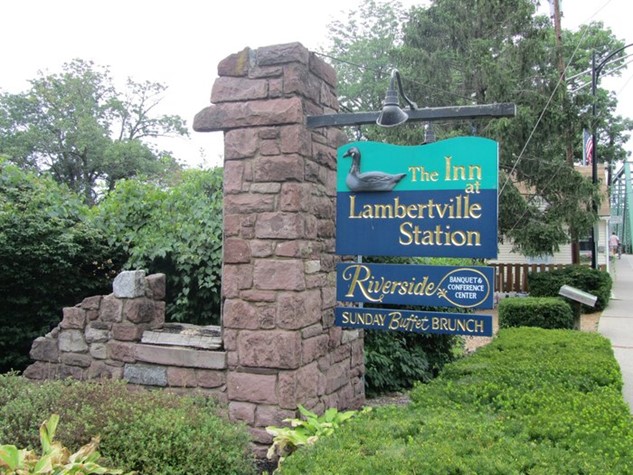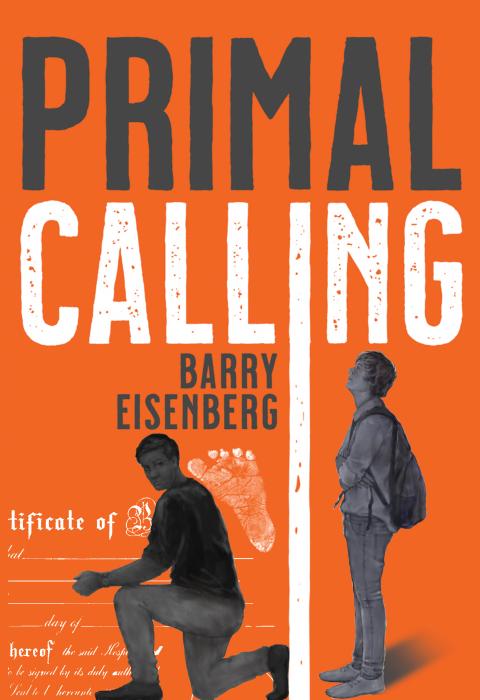The Optics of Etiquette
Nestled on the bank of the Delaware River, Lambertville, NJ is such a charmingly scenic town. Local artists display their farm-scapes in art cooperatives. Antique shops overflow with history ranging from early American spindles to 1950s art deco pastel geometrics that appear simultaneously retro and futuristic. Topping off the allure are the wonderful restaurants, from D'Floret with their locally sourced vegetables to the Under the Moon Café and their scrumptious Argentinian meatloaf.
cooperatives. Antique shops overflow with history ranging from early American spindles to 1950s art deco pastel geometrics that appear simultaneously retro and futuristic. Topping off the allure are the wonderful restaurants, from D'Floret with their locally sourced vegetables to the Under the Moon Café and their scrumptious Argentinian meatloaf.
One recent Sunday, Amy and I thought that a visit to Lambertville would be an ideal way to spend the afternoon. It was a mild winter day, perfect for brunch and a stroll. The Lambertville Inn is a real treat. The ground level terrace sits beside a serene canal and towpath, a peacefully picturesque setting shared amicably by bicyclists, hikers, and ducks. On this day we sat upstairs in the oak-adorned small dining room. But this story is not about the ambiance. Nor is it about the tantalizing fluffy three-cheese omelets or the heavenly seafood crepes. Or the attentive and friendly waitstaff.
It’s about the bathroom.
Though the Lambertville Inn is large, it is sectioned into multiple floors and rooms, lending to its quaint, cozy feel. Following a delightfully relaxing brunch, accented with mimosas, we headed down the center hall stairway. At the base, we spotted bathrooms and thought we’d make a quick pitstop before a leisurely walk through the town.
brunch, accented with mimosas, we headed down the center hall stairway. At the base, we spotted bathrooms and thought we’d make a quick pitstop before a leisurely walk through the town.
The men’s and women’s bathrooms were next to one another. The men’s bathroom was very small. To the left was a urinal and right next to it was a small sink. A door to a stall was straight ahead, no more than about 4 feet in from the entrance door. The urinal was occupied, so I knocked on the door to the stall. Getting no response, I pushed it open, noticing that it had a compact corner sink next to the toilet.
Before leaving the stall, I washed my hands and tossed the paper towel into the small trash can just below the sink. I then opened the stall door into the little bathroom area, taking just two steps to cover the short distance to the bathroom door.
The man who had been at the urinal was now washing his hands. As I reached for the door handle, he looked over at me and said, “Excuse me, Sir, excuse me.”
His tone was oddly abrupt. I couldn’t quite get a fix on it, but there was something off-putting about it. I turned my head in his direction.
“Do you realize that we just had a pandemic?” he asked.
There was no mistaking his tone now. It was clearly condescending, and it caught me off guard.
He immediately followed up, asking admonishingly, “Don’t you think you should wash your hands after using a restroom?”
My initial reaction was to the attitude, not the message. “Yes, I am quite aware that there’s a pandemic. But you ought to think twice about how you speak to someone,” I replied, bristling.
“And, by the way,” I added. “That stall has a sink in it, and I washed my hands in there.”
As my words were coming out, I understood that I responded too quickly, too defensively, maybe even angrily. So, before he could respond, I tried to reverse course. “Hey, listen, I don’t blame you for your concern. If I saw someone walk out without washing, I probably would have said something as well. It’s just how you asked me—”
Cutting me off before I could even finish my sentence, he said, “Oh, I am so sorry. I should have been a lot nicer about it. It’s just, I guess, my nerves got the better of me. My wife just finished a rough bout of covid. She was sick for weeks. I shouldn’t have spoken to you that way.”
He was clearly embarrassed, his body shrinking into itself.
“I’m really sorry to hear that. I hope she’s doing better,” I said.
“Finally, she is, thank goodness. She’s still not yet herself but she’s getting there. It’s a miracle I didn’t get it.”
We spent the next minute apologizing and re-apologizing for reacting discourteously, overcompensating for leading with less desirable versions of ourselves.
“It was just careless of me to speak that way.”
“No, no. I apologize.”
It was such an odd encounter, not the least of which was because of the irony: the bathroom was so small that we had no choice but to stand inches apart talking about germs while we may have been passing them along to one another.
We exited the bathroom, still trying to overcome the awkwardness of reacting too harshly by overdoing the politeness. Amy was standing there as he and I said our good-byes.
“So nice to meet you,” he said, with a big smile. He was clearly relieved, forgiven by me and, by extension, himself.
“Yeah, you too. Have a great day,” I replied.
Amy looked at me with a puzzled look. “What went on in there?” she asked. “You were in there for three minutes and now that man is your best friend?”
I started by telling her about his wife.
“How awful. Good that’s she over it,” Amy said.
As we walked out, I laughed and explained the whole episode, ending with, “We overdid the polite thing because we were embarrassed about having been rude.”
Then Amy laughed. “So, here’s what happened to me. I went into the bathroom. It has two stalls. A bigger one and a tiny one. Someone was in the small one. The bigger one had a sink, just like yours. I washed my hands, then opened the opened the stall door. When I came out, the woman from the other stall was washing her hands. I was about to walk out of the bathroom when—”
I cut in, “Don’t tell me, she called you out for not washing?”
“No,” Amy said, still laughing. “I was worried that if I just walked out, she would think I left without washing my hands. So I waited for her to finish washing, then I went to the sink and washed again. My hands have never been cleaner.”
Why didn’t I think of that? Live and learn.

